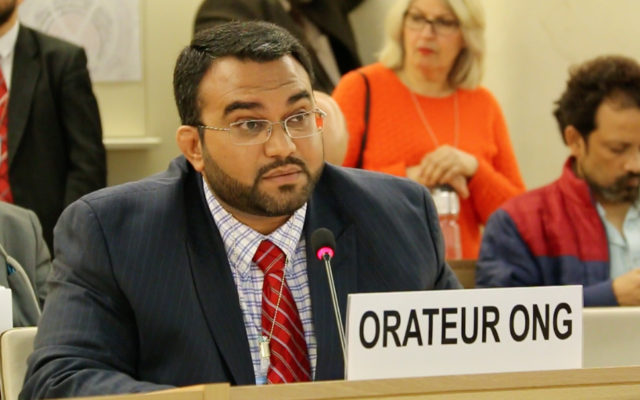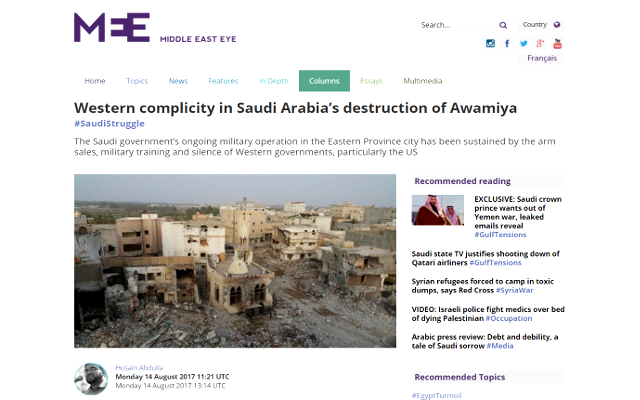
14 August 2017 – Americans for Democracy & Human Rights in Bahrain (ADHRB) Executive Director Husain Abdulla criticizes US complicity in the ongoing violence in Awamiya, Saudi Arabia and condemns all violence that has occurred in the area over the past months.
“The Saudi government’s ongoing military operation in Awamiya is buttressed and sustained by the complicity of Western governments, in particular the US. For a long time, the US has provided weapons and training to Saudi Arabia’s security forces, including its special operations and counter-terrorism forces, both of which are engaged in Awamiya. The US has also sold Saudi Arabia billions of dollars’ worth of weapons, underwriting the kingdom’s military.”
“The weapons sales increased dramatically during president Obama’s terms in office. However, even as he sold more arms to Saudi Arabia than any other administration, he had at least been a vocal advocate of conducting a foreign policy that respects human rights. Trump has shown no such inclination to even pay lip service to human rights. Instead, during his visit to Saudi Arabia, he was blatantly dismissive of human rights concerns as he crowed about increasing arms sales to the kingdom. Coming in the midst of the violent crackdown in Awamiya, his rhetoric has given the Saudi government a green light to continue its prosecution of the conflict in the Eastern Province.”
“Members of Congress have already expressed their opposition to a tank sale to Saudi Arabia and the sale of precision-guided missiles to the kingdom, illustrating growing discontent with US support for the Saudi government and Saudi Arabia’s human rights abuses. The Trump administration must halt its arms sales and military support to the kingdom and call on the Saudi government to immediately withdraw from Awamiya. Furthermore, the US should make any future arms sales or weapons transfers to the kingdom contingent upon significant and serious human rights reforms, especially concerning the treatment of its Shia minority in the Eastern Province.”
To read the full article in Middle East Eye, please click here.





